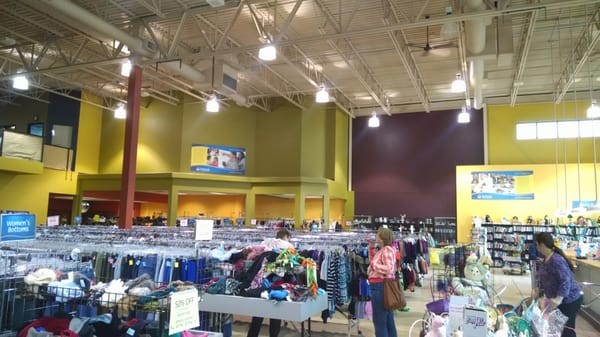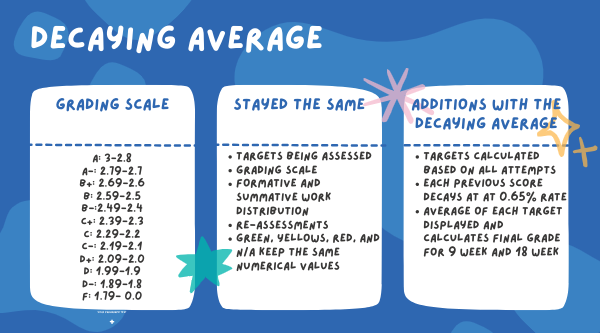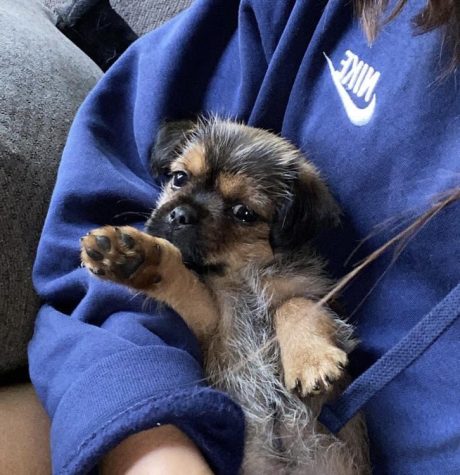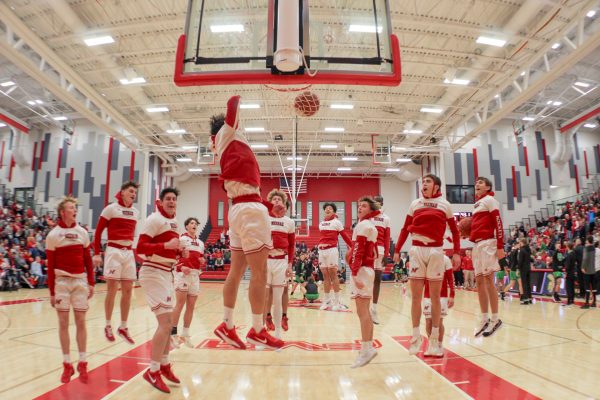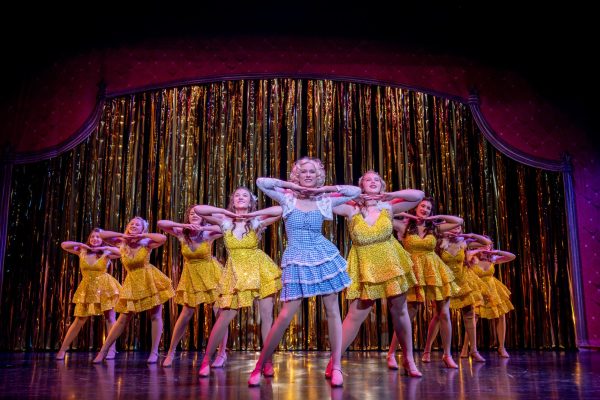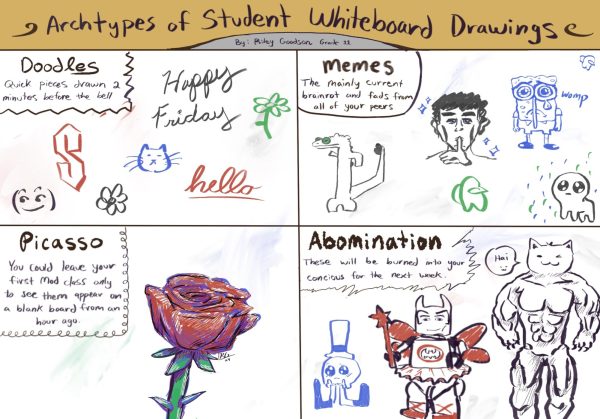2016 Presidential Election: Merchandise, Media and Millennials
I spent Sunday morning on Youtube, watching Stephen Colbert on “The Late Show” make every possible joke he could about the 2016 presidential race. I do not usually watch Youtube videos all morning, but I enjoyed the comedic side to politics after viewing the Republican debate on Saturday. Late night talk show hosts have been satirizing the news for decades, and according to NBC, one out of every 10 Americans got their political news from late night television during the 2000 election. One clip that stood out to me was Colbert discussing the merchandise candidates have for sale, including Rand Paul phone cases, Hillary Clinton beer cozies and Bernie Sanders mugs encouraging buyers to “feel the Bern.” Another segment featured Clinton’s attempts to connect with millennials by asking them to tweet how their student debt made them feel in three emojis or less. Colbert’s segments are obviously intended to be comical, but they made me to wonder. Will beer cozies and ’90s-sitcom-inspired logos attract millennial voters? Will college-aged students “feel the Bern” and vote? Can Donald Trump win over voters 30 and under, when 43 percent of them identify with one or more minority groups?
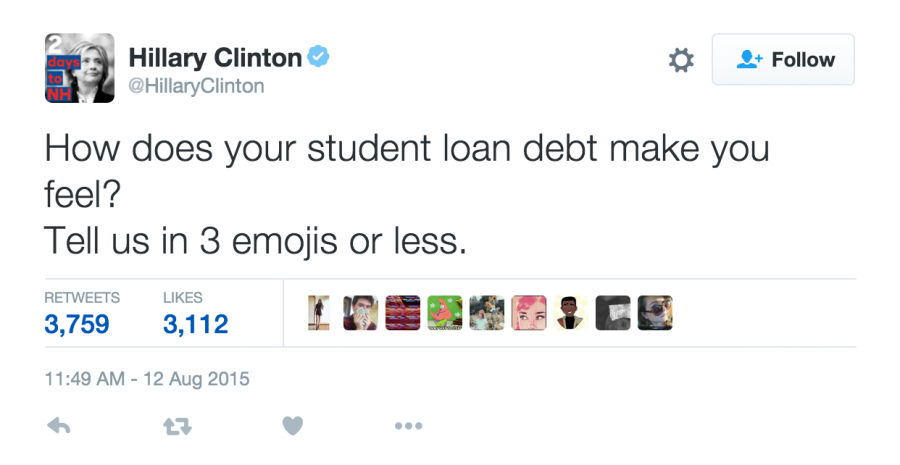 Many campaigns have taken interesting approaches to get the millennials on their side. Clinton has entertained rather than recruited voters with her Cedar Rapids vine, the infamous “Chillary Clinton” beer cozy and her student-debt-emoji tweet. Her attempts to connect with millennials have come across as awkward instead of relatable. Social media is an integral part of the 2016 election and a candidate’s online presence will definitely influence voters.
Many campaigns have taken interesting approaches to get the millennials on their side. Clinton has entertained rather than recruited voters with her Cedar Rapids vine, the infamous “Chillary Clinton” beer cozy and her student-debt-emoji tweet. Her attempts to connect with millennials have come across as awkward instead of relatable. Social media is an integral part of the 2016 election and a candidate’s online presence will definitely influence voters.
Colbert begins his segment by saying, “One of the most important factors in a successful campaign is the online merchandise store where you can buy candidate-themed t-shirts, mugs and trucker caps.” And a perusal of candidate websites proves this. I decided to pick some of my personal favorite merchandise items. With so much great merchandise to choose from, it was hard to pick which items I liked best. Ted Cruz, who won the Republican Iowa caucus, sells coloring books, Christmas sweaters and a disturbing poster of his face edited on a tattooed body. Marco Rubio also has some great options including a Ru(BAE)o t-shirt and a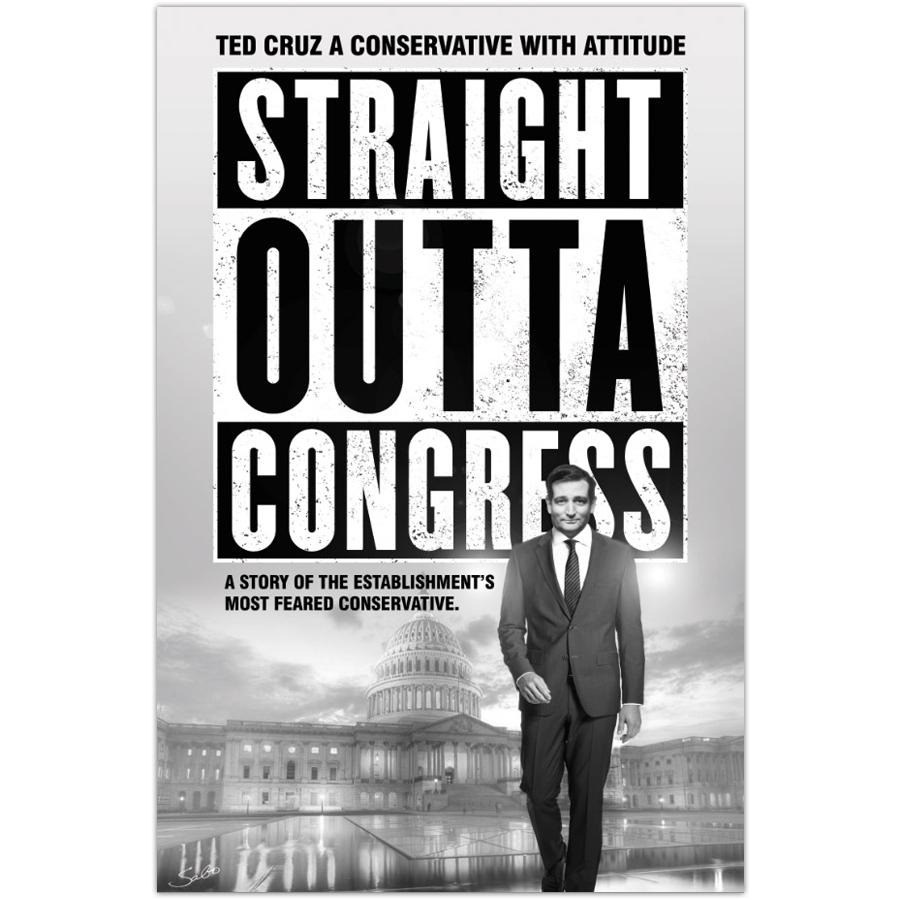 n emoji-inspired logo, available in t-shirt and sticker form (with clarification of what the emojis mean underneath). Trump is selling more traditional campaign merchandise, but do not forget the popular “Make America Great Again” cap available in red, white, blue and camouflage. Of course, buying a candidate’s merchandise is a great way to support their campaign and get a cool t-shirt too. But, who is buying a Ted Cruz “Straight Outta Congress” poster? Who wants a poster of Cruz’s face photoshopped onto a tattooed, muscular body? Are college students hanging them up in their dorms?
n emoji-inspired logo, available in t-shirt and sticker form (with clarification of what the emojis mean underneath). Trump is selling more traditional campaign merchandise, but do not forget the popular “Make America Great Again” cap available in red, white, blue and camouflage. Of course, buying a candidate’s merchandise is a great way to support their campaign and get a cool t-shirt too. But, who is buying a Ted Cruz “Straight Outta Congress” poster? Who wants a poster of Cruz’s face photoshopped onto a tattooed, muscular body? Are college students hanging them up in their dorms?
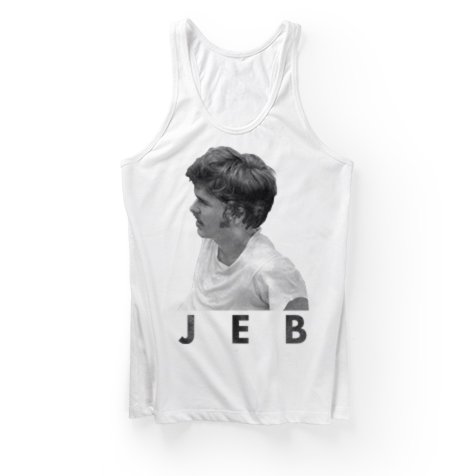 The candidate’s strategies for connecting with millennials confuses me. I wonder if 18-30 year olds are brought in and asked if they would buy a tank-top with Jeb Bush from the 1970s on it? I am guessing it is supposed to have a vintage, underground rock music feel, like something voters would wear to a Nirvana concert. Overall, I appreciate the effort candidates are putting into appealing to millennials. We both share the opinion that the millennial vote is needed and crucial.
The candidate’s strategies for connecting with millennials confuses me. I wonder if 18-30 year olds are brought in and asked if they would buy a tank-top with Jeb Bush from the 1970s on it? I am guessing it is supposed to have a vintage, underground rock music feel, like something voters would wear to a Nirvana concert. Overall, I appreciate the effort candidates are putting into appealing to millennials. We both share the opinion that the millennial vote is needed and crucial.
2016 will be the first year I, my classmates and thousands (millions?) of other millennials vote. I hear people say they will not be voting because “their vote does not matter.” But millennial votes could ultimately decide the winner.
Everyone needs to vote because every vote does matters. Here is how to register to vote in Wisconsin:
- Fill out the Voter Registration Form
- Print the Form
- Provide Proof of Residence
- Determine Registration Deadline
- Mail or Deliver Your Form
Or, register to vote on Election Day. If attending an out of state college, voters have the option to vote in the school’s state or fill out an Absentee Ballot for Wisconsin.
Since we live in such a technology-driven world, information is more accessible to voters than ever before. Thirty years ago, people were practically clueless as to information now available with a quick Google search. Every opinion, voting record and press release is online somewhere, giving voters the ability to make informed decisions. Millennials create and consume social media every day, which makes it the perfect place to promote campaigns. Many candidates have multiple social media platforms including Twitter, Instagram and even Snapchat. Followers are able to receive updates the second they happen in the form of 140 characters, pictures and 10 second videos. Candidates need to use social media in ways that will appeal to millennials.
Be an informed voter. Whether voters get their news from late-night television or Twitter, research the candidates and the issues. Do not let others decide. Voting expresses opinion, so influence politics. Buy merchandise if desired. Become involved in the country.


